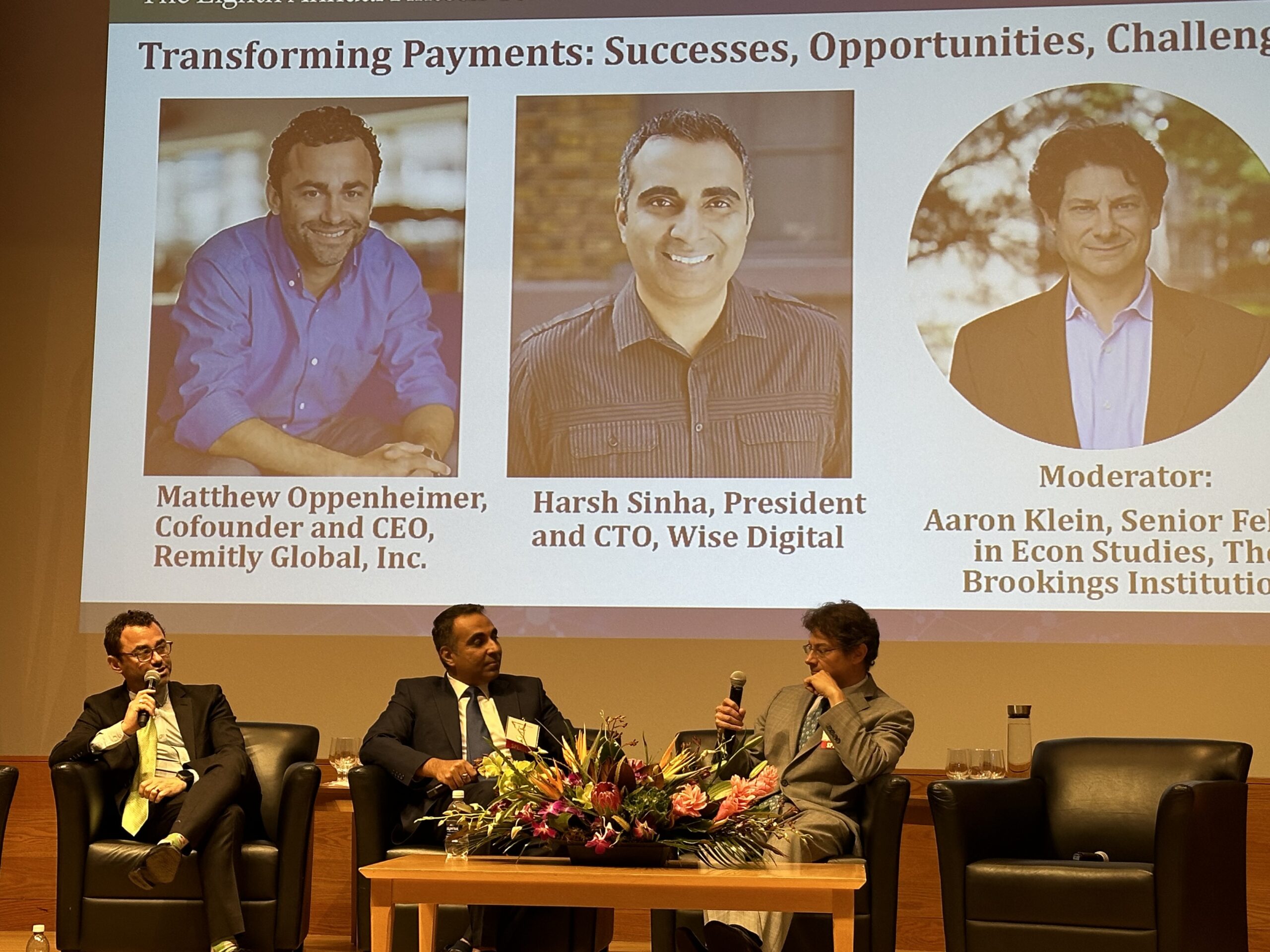On October 22, 2024, Remitly Co-founder and CEO, Matt Oppenheimer, took the stage at the 8th Annual Fintech Conference at the Federal Reserve Bank of Philadelphia. In a fireside chat titled “Transforming Payments: Successes, Opportunities, and Challenges,” Matt joined Harsh Sinha, U.S. President and CTO of Wise, for a discussion moderated by Aaron Klein from the Brookings Institution. The discussion highlighted shared goals between two leading remittance providers, focusing on modernizing payments infrastructure, advancing financial inclusion, and the importance of granting nonbank remittance providers direct access to U.S. payment systems, like FedNow.
Key Takeaways from the Discussion
- Value of Remittances Surpassing Development Aid
Matt highlighted how private remittances now exceed total global development as a source of fund transfers, underscoring the critical role remittances play in supporting families worldwide and stabilizing economies in developing countries. In recent years, U.S. private remittances surpassed public sector aid to low-and-middle-income countries as a category, reflecting their growing importance in helping attract entrepreneurs and talent, advancing U.S. soft diplomatic power, and helping people worldwide meet basic and emergency needs. - The Remittance Industry in the U.S. is Highly Regulated and Centered on Trust
Matt and Harsh emphasized the importance of trust in financial services, especially with respect to cross-border payments. Matt noted that remittance providers in the U.S. operate under a robust regulatory framework, including state licensure, supervision by the U.S. Consumer Financial Protection Bureau (CFPB), and the U.S. Financial Crimes Enforcement Network (FinCEN) reporting, as well as by regulators in jurisdictions around the world. Matt emphasized that this framework combined with Remitly’s focus on compliance helps to build trust and promote transparency, ensuring that customers can send funds securely and efficiently. Additionally, the panelists discussed with Aaron Klein the importance of transparency in the remittance market, highlighting how the CFPB’s Remittance Rule empowers consumers by helping them make informed decisions. - FedNow Access for Remittance Providers Can Reduce Costs and Modernize Payments
Direct access to U.S. Federal Reserve payment rails for nonbank remittance providers like Remitly will lower costs, provide faster transactions, and enhance financial inclusion. The conversation highlighted key legislation—the Affordable Remittance Act—a bill authored and led by U.S. Congressman Ritchie Torres that will grant nonbank remittance providers direct access to FedNow while also preserving the critical role state regulators play in overseeing money services businesses, like Remitly. “[FedNow access] will help support this really important customer base to give them the product that they deserve,” Matt noted. The panelists further highlighted that the U.S. remains one of the only G7 countries without a framework granting well-regulated payments firms with direct access to their payment systems.
Matt Oppenheimer concluded by expressing gratitude to the Federal Reserve Bank of Philadelphia and his panel peers. He emphasized the value of the conversations in helping shape the future of cross-border payments and stressed the importance of remittance services in ensuring affordable, secure, and inclusive financial solutions for millions of families around the globe.
Contact
For more information, visit the Remitly Newsroom or reach us directly at press@remitly.com.





